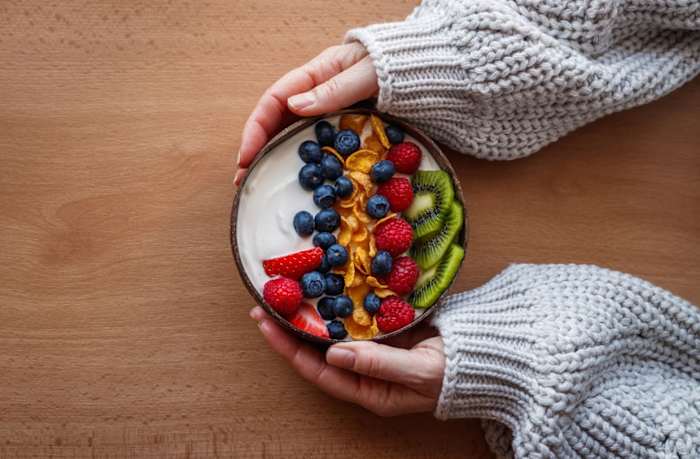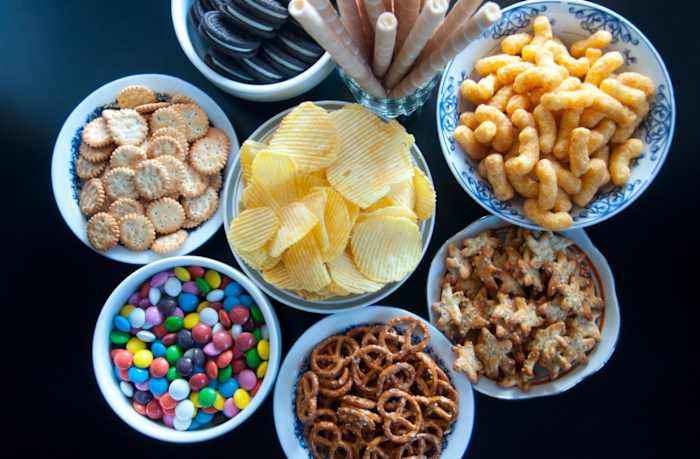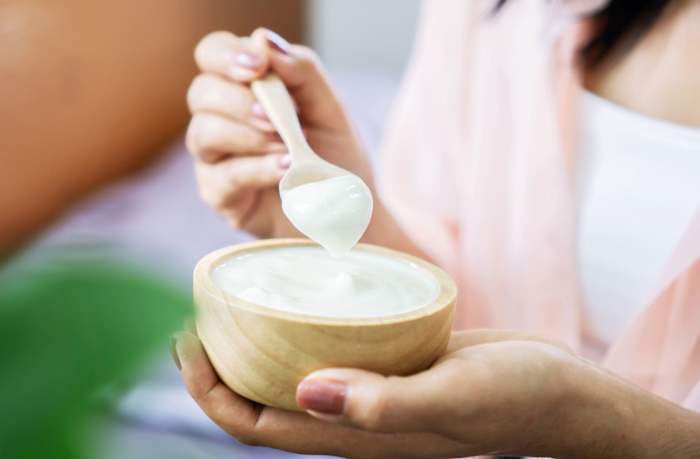The products featured in this article have been independently reviewed. When you buy something through the retail links on this page, we may earn commission at no cost to you, the reader. Sports Illustrated editorial staff are not involved in the creation of this content. Learn more here.
Probiotics are living bacteria that may have a positive effect on the health of the gut microbiome, the microbial populations that reside in your large intestine. Probiotics may be some of the most popular supplements you can buy these days, but the original source of probiotics is actually food.
There are several excellent, food-based sources of probiotics that can help you get plenty of these healthy, live cultures in your diet without taking a probiotic supplement.
In this article, we’ll review the best probiotic foods you can eat for a healthy gut, which foods to avoid for optimal gut health, the benefits of probiotics and how to know if you need a probiotic.
Benefits of Probiotics
The benefits of probiotics are numerous. Although probiotics are known for helping to regulate digestive health, they can actually do a lot more than just that.
Introducing beneficial probiotics helps to improve the health of the existing microbial populations in your gut. When the bacteria that make up your gut microbiome digest prebiotics (their food sources, typically fiber—which is indigestible by humans), they produce short-chain fatty acids, also known as SCFAs.
Related Post: Prebiotic vs. Probiotic
These SCFAs are responsible for a number of different roles and functions, including:
- Weight management
- Blood glucose control
- Mood regulation
- Cognition, attention and memory
- Immune system health and inflammation
- Skin conditions
Not to mention, they play key roles in proper digestion, so imbalances or dysfunction in the gut microbiome may result in digestive symptoms like bloating, gas, constipation, diarrhea or heartburn.
Clearly, the health of your gut microbiome can have a massive impact on your overall health and well-being.
Related Post: The Top Benefits of Probiotics for Women
What Are the Signs You Need Probiotics?
Does everyone need to take a probiotic? Not necessarily. However, you may benefit from taking one if you can relate to any of the following:
- You have persistent digestive system issues like gas, bloating, heartburn, constipation or diarrhea
- You have fatigue or brain fog
- You have skin conditions like rashes, eczema or dryness
- You get sick often
- Your diet doesn’t include any fermented or probiotic-rich foods
- Your diet is limited and doesn’t contain a wide variety of foods
It’s important to remember that, although some foods do contain probiotics, a probiotic supplement is the best choice if your healthcare provider has recommended adding probiotics.
Probiotic supplements are designed to protect the bacteria they contain until they arrive in the large intestine. However, probiotics in food may be destroyed by stomach acid and other digestive secretions and processes before they arrive at the large intestine.
Types of Probiotics
The two main types of probiotics are probiotic foods and probiotic supplements.
Probiotic foods are foods that naturally contain live bacteria, like fermented vegetables, cultured yogurt and fermented beverages like kombucha.
Probiotic supplements are dietary supplements that are designed with certain strains of good bacteria for specific purposes, like boosting overall wellness, gut health, brain function or immune system function.
There are countless probiotic strains, each of which may support different functions and offer different benefits.
Some of the most widely researched probiotic microorganisms are species of Lactobacillus and Bifidobacterium. Many clinical trials and well-designed studies are available to support the health benefits of various strains in these bacterial families.
Probiotic Foods That Help Gut Health
Probiotic foods are made through fermentation, or allowing foods to age—normally in a salt brine—to encourage the growth of bacteria.
In addition to providing beneficial gut bacteria, the fermentation process also preserves food, significantly increasing its shelf life. In the past, fermentation was necessary to preserve food. Now, fermented foods are mostly specialty items. However, more and more people are becoming interested in them for their potential health benefits.
Here are some of the most well-known probiotic foods that may help support gut health.
Sauerkraut
Sauerkraut is a fermented cabbage food that originated in central Europe. It’s now a popular food around the world. It’s made by briefly aging crushed cabbage in a brine. Sometimes, it may contain additional spices like caraway seed.
As bacteria proliferate in the mixture, they preserve the cabbage and keep it crisp. For the most probiotic benefits from sauerkraut, look for kraut that’s sold in the refrigerated section. Canned, shelf-stable sauerkraut has been pasteurized, or heated to a point that any bacteria in it are destroyed.
Still, in one small study, researchers found that sauerkraut could improve symptoms of irritable bowel syndrome even if it had been pasteurized.
Kefir
Kefir is a probiotic beverage made from fermented milk and kefir grains, a particular type of microbial starter. Water kefir is a plant-based version made from water, fruit, sugar and kefir grains for those who are vegan or lactose intolerant.
There have been several randomized controlled trials on the benefits of dairy-based kefir, and researchers have noted that it may be helpful for digestion and bone health. The bacteria in kefir also produce lactic acid, which breaks down the proteins in milk to a number of smaller compounds called peptides. These peptides may offer some unique benefits, such as lowering blood pressure.
Kefir can be purchased in the dairy products case at most grocery stores, and you can also purchase kefir grains online or at specialty stores to make your own.
Kimchi
Like sauerkraut, kimchi is a fermented cabbage. It’s often made from Napa cabbage or other varieties of Chinese cabbage, along with radish, carrots, scallions and chili paste. Kimchi is a popular and widely used condiment in Korean cuisine or as a side dish to stir-fries.
Some research suggests that fermented kimchi may offer some weight loss and metabolic health benefits. In these studies, fermented kimchi offered more benefits than fresh kimchi—suggesting that the fermentation process or the live probiotics in the fermented kimchi were partially responsible for the health effects.
Kimchi can be purchased in the refrigerated section of many grocery stores or at Asian markets. As with sauerkraut, canned shelf-stable kimchi has usually been pasteurized, so it won’t contain live probiotics.
Kombucha
Kombucha is a fermented tea made with a symbiotic culture of bacteria and yeast, also known as a SCOBY. It can be made from green or black tea, and usually contains added sugar or honey for sweetness, and fruit for flavor. When the SCOBY is added to tea, the bacteria and yeast start to ferment the beverage.
There’s been very little research on the effects of kombucha in humans, though. In animal studies, kombucha has been shown to help reduce inflammation and improve gut health.
Kombucha can be found at most grocery stores with cold beverages.
Miso
Miso is a fermented paste made from soybeans. It’s prominent in Japanese cooking, and a significant source of salty and savory umami flavor. It’s responsible for the distinctive taste in miso soup, as it’s used to flavor the broth. It doesn’t take much miso to add a lot of flavor to dishes.
Still, remember that cooking miso will destroy the probiotic bacteria in the paste. You can enjoy the probiotic benefits of miso by using it to make salad dressings or sauces that are consumed cold.
Miso can be purchased online, at some grocery stores or at Asian markets.
Soybeans
Fermented soybeans—called “natto”—are a sticky, pungent condiment in Japanese cuisine. Their strong smell and taste make them an acquired taste, but natto is an excellent source of probiotics. Natto may also help support healthy bones by boosting bone mineral density.
Natto may be difficult to find at grocery stores unless you’re in a large urban area, but you can order it online.
Yogurt
Yogurt is a fermented milk product that contains live, active cultures. It’s a great way to include fermented foods in your diet, especially if you don’t like the taste or tang of fermented vegetables like kimchi or sauerkraut.
Yogurt is also really versatile. It can be eaten as a snack or as part of a breakfast, added to smoothies or used instead of mayonnaise in dishes like chicken salad or tuna salad. It can also be used instead of sour cream in foods; just remember that high temperatures will kill the probiotics in the yogurt.
Cottage cheese
Cottage cheese, much like yogurt, is a dairy product that can contain live probiotics.
It’s made by gently cooking soft cheese curds that form in milk as a result of the fermentation process. Because there's a cooking process involved, not all cottage cheeses contain live and active cultures. However, several brands add probiotics back in; just check the label for “live, active cultures” before you buy.
Cottage cheese is versatile, and can be used in place of yogurt in cold dishes. As an added bonus, cottage cheese is higher in protein than yogurt.
You can buy probiotic cottage cheese in the dairy case at most grocery stores.
Pickles
Traditionally made pickles are fermented, much like sauerkraut. If you buy pickles from the refrigerated section, you can get some probiotic benefits from them. Refrigerated, fermented pickles also retain their snap and crunch really well. If you dislike the flavor of other fermented foods, pickles may be a good choice.
Fermented pickles can be found in the refrigerated section at most grocery stores.
Foods to Avoid to Fix Your Gut
Here are some foods that may damage your gut health by harming your microbiome.
Refined sugar
A diet high in added sugar—particularly highly refined sugars, like those found in ultra-processed, packaged foods—can harm the health of your microbiome.
Researchers theorize that large intakes of sugar, especially during childhood, could affect the balance of bacteria in your gut. This may make it easier for harmful bacteria to crowd out beneficial bacteria, which could affect digestion, immune health and even brain function.
Most of the research on the effects of sugar on the microbiome has been done in animals, though. That means that we don’t yet have a clear understanding of how sugar affects the microbiome in humans.
Artificial sweeteners and sugar alcohols
Artificial sweeteners and sugar alcohols provide the sweetness of sugar, but without affecting your blood sugar levels or providing calories. These zero-calorie sweeteners are found in many different foods and drinks, including diet sodas, low-carb or keto-friendly sweets and protein powders.
However, some research suggests that artificial sweeteners may alter your gut microbiome in a way that makes it more difficult to manage your blood sugar levels. This could actually make it harder to lose weight, which for many people may defeat the purpose of choosing artificial sweeteners over real sugar.
Additionally, sugar alcohols like xylitol have been linked to digestive upsets like gas, cramping, bloating and diarrhea. Over time, consuming these sugar alcohols could also have a negative effect on your gut microbiome balance.
Ultraprocessed foods
Ultraprocessed foods are foods that are made using highly refined ingredients and industrial processes. It would be really difficult, if not impossible, to replicate these foods at home using ingredients you can purchase from the grocery store. Some examples include snack cakes, boxed meals, frozen meals, fast food and packaged snacks like corn chips.
According to a 2021 review in Obesity Reviews, ultraprocessed foods are been linked to obesity, type 2 diabetes, heart disease and many other health problems.
Current research suggests that ultra-processed foods may also trigger gut inflammation, which can affect the bacterial populations in your gut microbiome. These changes could be associated with reduced brain function, cognitive decline and mood changes.
Alcohol
Alcoholic drinks may also have a negative impact on gut health.
In excessive amounts, alcohol damages your gut lining and changes the concentrations of bacteria in your gut. This can lead to intestinal permeability (which allows the contents of your digestive tract to leak out), inflammation and an increased risk of liver disease.
A 2019 meta-analysis in Behavioral Brain Research also noted that alcohol-induced gut dysbiosis could affect behavior, since the gut microbiome can affect brain chemistry to a significant degree.
How to Add Probiotics to Your Diet
Want to add more probiotic foods to your diet? Here are a few strategies to help you incorporate more of these delicious, gut-healthy foods:
- Use fermented veggies as a condiment: Fermented vegetables can be a complement to almost any meal, making an easy side dish and a great way to quickly add a dose of healthy probiotics to any meal. Keep your fridge stocked with kimchi, sauerkraut, natto and fermented pickles, and add them to whatever you like.
- Drink kefir or kombucha instead of soda, tea or milk: Kefir and kombucha are great alternatives to other beverages you may drink regularly, with the added benefit of live probiotics. Still, remember that both of these probiotic drinks contain some sugar, so you probably won’t want to have more than one or two servings per day.
- Eat more yogurt: Yogurt is probably the easiest and most widely appealing way to consume live probiotics, particularly if you or the others in your household don’t like the strong taste of other fermented foods. Yogurt can be used as a snack, in smoothies, as a cold or frozen dessert, in place of milk in overnight oats and in a number of other cold recipes that preserve the beneficial bacteria.
- Make miso salad dressing: Cooking destroys the bacteria in miso, but you can use it to make a probiotic vinaigrette dressing with honey, oil and vinegar.
Don’t forget that cooking probiotic foods destroys the probiotics. Although many of these foods are still delicious and healthy when cooked, you’ll need to eat them raw to get the benefits of live probiotics.
Our Favorite Probiotic
Probiotic Foods FAQs
What drinks have probiotics?
Kombucha, kefir, water kefir and drinkable yogurts all contain live probiotic bacteria.
What probiotic is best for inflammation?
According to a 2021 review in Frontiers in Immunology, the best probiotic strains for inflammation include those from the Lactobacillus, Bacillus, Bifidobacterium and Saccharomyces genuses.
Does drinking water help probiotics?
Water won’t necessarily have an impact on the microbial balance in your gut, but it can help with overall digestive health. Your body needs fluid to help with the transit of food through the digestive tract, and water is also important for the adequate function of your kidneys, one of your body’s major detoxification organs.
What is the most powerful probiotic?
Because all probiotics have slightly different benefits and uses, there’s no one strain that would be considered the “most powerful.” The two most beneficial types of probiotics, according to current research, are Lactobacillus and Bifidobacterium species.
What naturally kills bacteria in the gut?
Microbial balance in the gut can be influenced by a number of factors. Antibiotic medications that are taken orally can destroy beneficial and harmful bacteria in the gut.
Additionally, certain foods or beverages—like alcohol, added sugars and ultraprocessed foods—may also destroy healthy bacteria over time, or make it easier for less healthy bacteria to populate your gut.
Prices are accurate and items in stock as of publish time.












